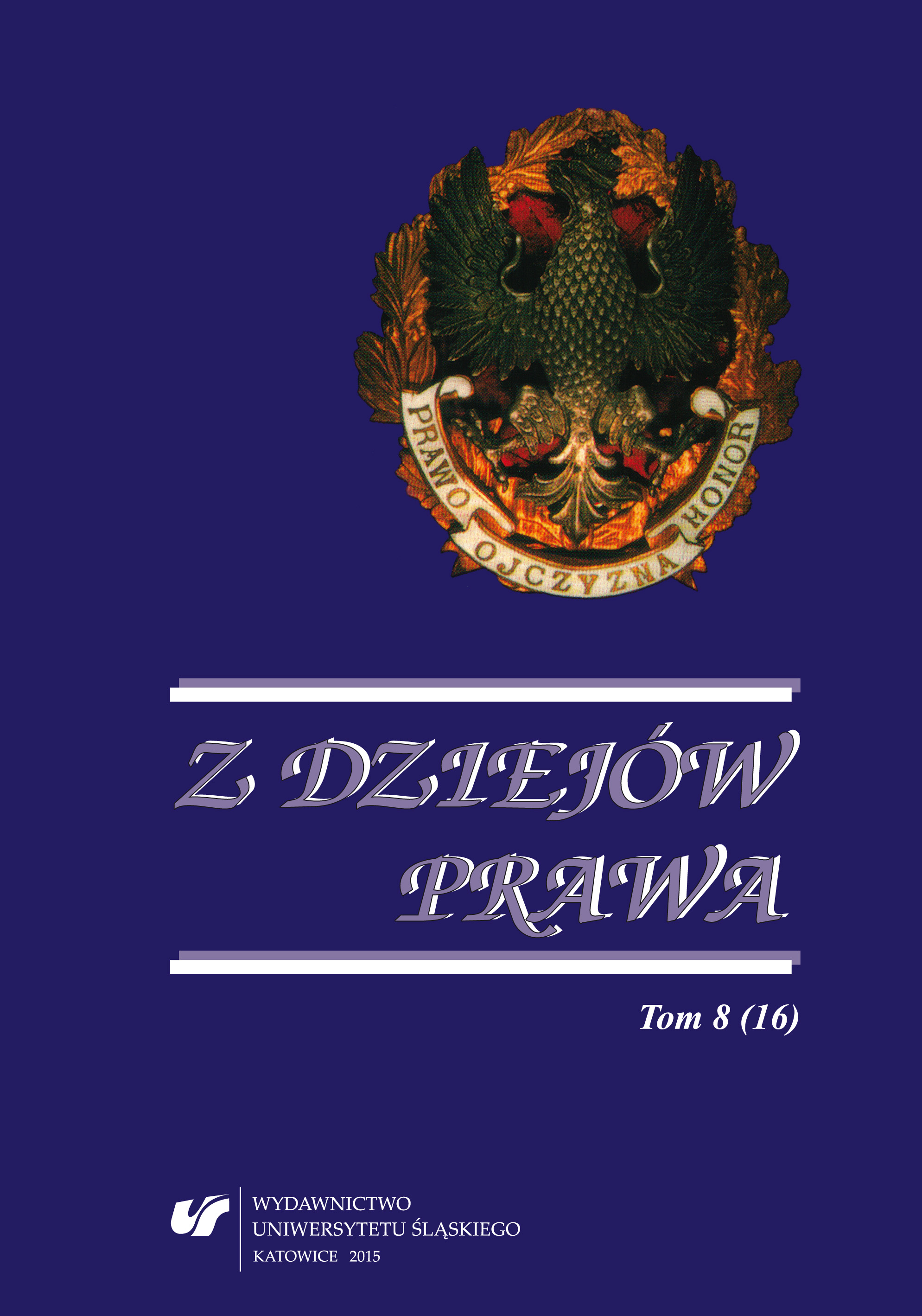Kwestia odpowiedzialności karnej żołnierzy za działanie na rozkaz w Kodeksie karnym Wojska Polskiego z 1944 r.
The Question of Criminal Liability of Soldiers for Following Orders in the Military Penal Code of the Polish Army of 1944
Author(s): Michał ArndtSubject(s): History of Law
Published by: Wydawnictwo Uniwersytetu Śląskiego
Summary/Abstract: Numerous trials of war criminals that followed the end of the Second World War, including the most notorious Nuremberg Trials, demonstrated that the line of defence which consists of justifying crimes with the imperative to follow orders does not absolve the defendant of criminal liability. International law as well as individual penal systems of the Western countries, on the basis of the experiences of the previous war, had been gradually abandoning the idea of absolute obedience with regard to orders perceived as one of the reasons for the committed crimes—crimes which the Allies were trying to prosecute. However, the penal code of the Polish People’s Republic evolved in a very different direction—the rules of the Military Penal Code of the Polish Army of 1944 were established in the spirit of the so-called blind bayonets theory, on the basis of a “revolutionary Soviet model.” The legislators had, therefore, divorced themselves from the legislative legacy of the Second Polish Republic, whose legal system assumed the rule of moderate obedience, instead adopting a solution which had been not only foreign to the domestic legal tradition, but also by all means regressive in the broader context. In the first years in which the Military Penal Code of the Polish Army remained in force, it became apparent that the rule of absolute obedience in the military chain of command—even if acting in accordance with the orders would lead to committing a crime—was to play an important role in the plan of the communist authorities to eradicate the post-HA (the Home Army) opposition as well as to pacify any civilian unrest with the help of the military. The concept of absolute obedience of the military personnel remained in force the in Polish military legal system for over twenty-five years. In practice, however, since mid-1950s, the importance of that concept diminished significantly. The case law of the time (particularly that of the Supreme Military Court) reflected those changes, and steps were undertaken to liberalise the rules regarding criminal liability for following orders, implemented by the Military Penal Code of the Polish Army of 1944. The legislators attempted to reflect the solutions functioning in Western legal systems, in which soldiers accused of a crime could not escape penal liability on the basis of following orders issued by their superiors which lead to committing the crime.
Journal: Z Dziejów Prawa
- Issue Year: 16/2015
- Issue No: 8
- Page Range: 45-66
- Page Count: 22
- Language: Polish

